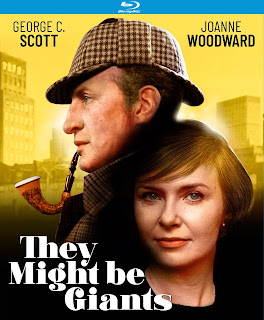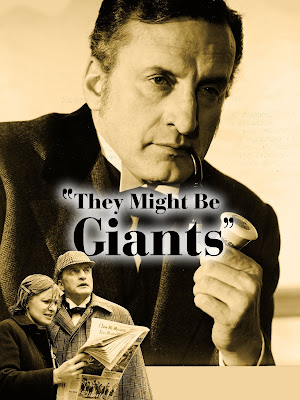Oh. It's a Sherlock Holmes movie. I have seen
this title around for years and had no idea until I saw something the other
day. I thought it had something to do with logging in the north-west. I will
see anything Sherlockian. I don't know why exactly but his character fascinates
me in all its shadings. Now the reason I never was particularly interested
in this film is because it stars George C. Scott. That I knew and it was
enough to skip it. I find his acting exhausting. Always bigger than life.
When I think of him I think of Patton or General Turgidson in Dr. Strangelove.
His face always looks clenched in anger ready to explode. But it's Sherlock
and even if Mel Gibson played Sherlock I would be tempted and I despise Mel
Gibson. I would rather eat rancid meat than watch one of his films. There
isn't much I can do about all the hate in the world but at the least I can
boycott this cocksucker. Not that there is anything wrong with cocksuckers.
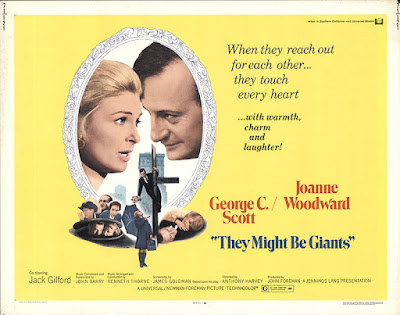
Of course Scott isn't really Sherlock Holmes but he believes he is and that
is almost the same thing. When his wife died he had a nervous breakdown and
emerged from it as Sherlock Holmes with all his mental acuities. At one point
one character calls him Basil Rathbone. He can pull that old carnival trick
of observing people for a few minutes and tell them everything about them
from what they had for breakfast to how messy their apartment is. Whether
they are loved or are lonely. He pulls a mental patient out of his silence
by realizing that he thinks he is Valentino, a silent film star. But he lives
in a self-created delusionary world in which he can look at a newspaper and
tie together crimes from a rape to an accident and lay them at the feet of
Moriarty. He is in fact one of the best Sherlock Holmes ever. Just
crazy. And living in New York City in the modern day.
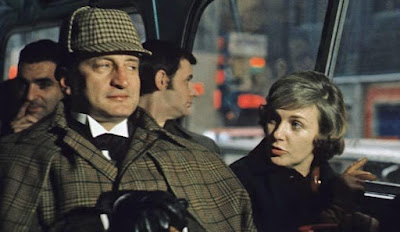
His brother Blevins (Lester Rawlins) wants to have him institutionalized
- not so much because he thinks his brother needs to be but because he wants
to control his assets. And if that doesn't work he has men who will kill
Holmes. Because before he became Holmes, he made a lot of money. To get him
put away though he needs the signature of the head psychiatrist played by
Joanne Woodward. She insists on observing him before she does. Her name is
Dr. Watson. And the game is afoot as Holmes chases after shadowy figures
mainly in his mind, seeing clues in trash bins, at the phone company, in
the Times Square news scroll. And he needs his Watson.
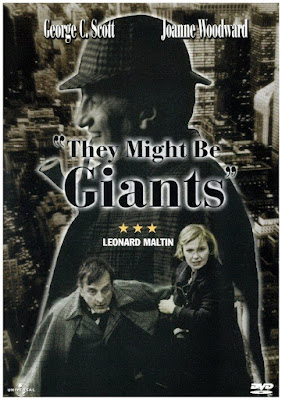
The first half of the film is delightful as the two of them go around NYC
following up on one elusive nonsensical clue after another that will take
them to Moriarty and then it runs into a brick wall of romance as he and
Watson find themselves falling in love - and then it collapses into pointless
absurdity that may have played better back in 1971. The film forgets the
entire thread of someone trying to kill Holmes. Maybe it doesn't matter.
Maybe only love does. Also making appearances are Jack Gilford, Al Lewis,
Eugene Roche and Rue McClanahan.
